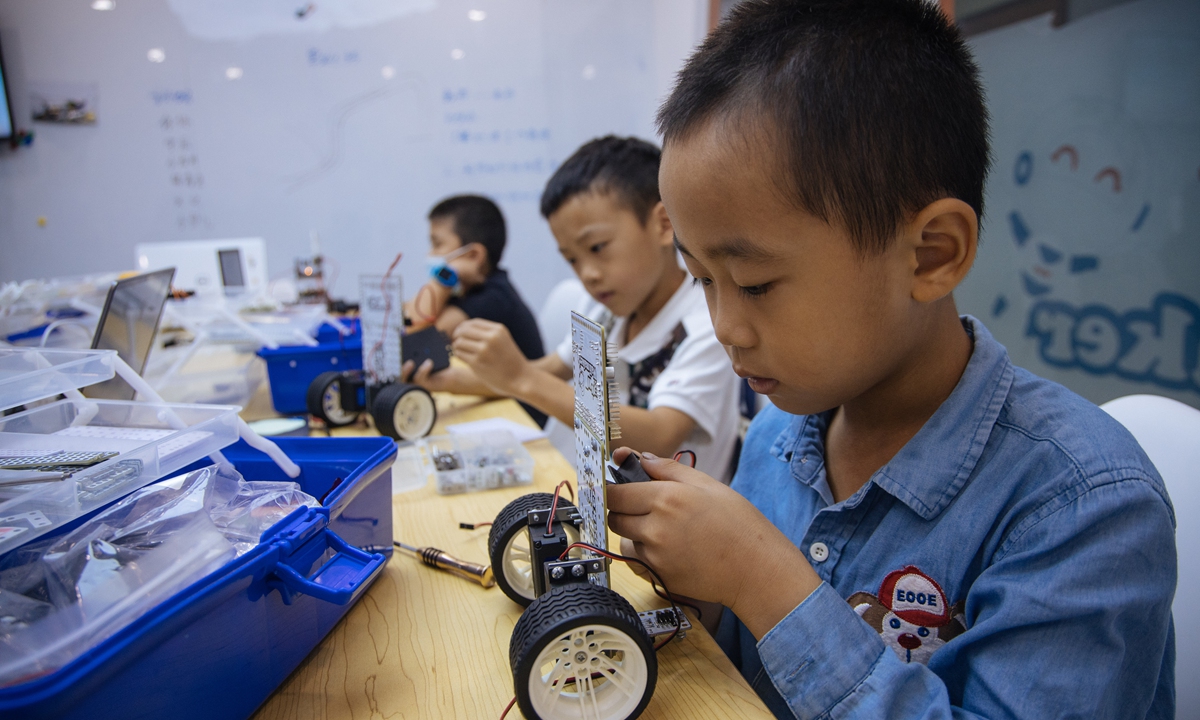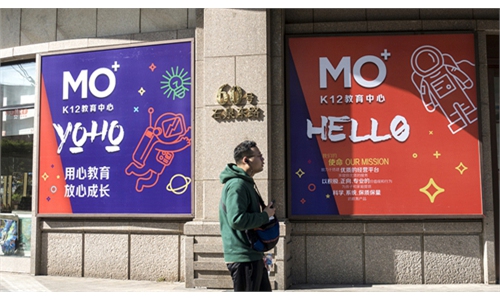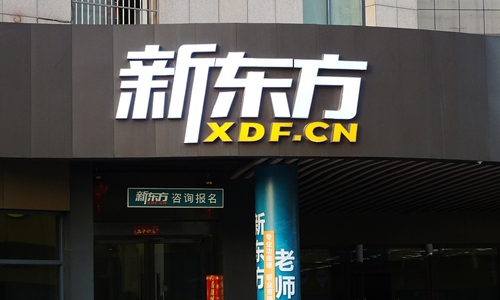Over 80% private tutoring institutions slashed in China following 'double reduction' policy

A student learns how to program in an elementary school in Beijing on Tuesday. Off-campus hobby programs, such as sports training and computer science classes, have become popular among students as China's authorities seek to cut excessive homework and after-school tutoring. Photo: Li Hao/GT
China's tightening scrutiny on the curriculum-based private tutoring has made significant progress with more than 80 percent of online and offline private tutoring institutions closed, latest data from the Ministry of Education (MOE) revealed on Tuesday.
Off-line training institutions have been reduced by 83.8 percent, while the online groups have been cut by 84.1 percent.
Some of the remaining training institutions have been repurposed as non-profit institutions, implementing government-guided prices and providing public welfare services; those that are not suitable for non-profit operations will be further written off, the ministry said.
Since the implementation of the "double reduction" policy, schools across the country have formulated relatively complete homework management methods and established a homework awareness system. The proportion of students completing homework within prescribed time has increased to more than 90 percent at the moment from 46 percent prior to the implementation of the policy.
The "double reduction" policy refers to a reduction in homework and in time spent in extra-curricular classes or after-school private tutoring. The range of measures aims to promote equality in the education sector by extending on-campus classes for every student.
At the end of September, the MOE reiterated its policy banning small-scale private tutoring, which has been disguised under different names, such as one-on-one teaching, high-end domestic helper service, crowdfunding private tutoring, and live-in teaching.
China heightened scrutiny placed on the private tutoring sector in July in a bid to correct unhealthy competition within the industry and ease the burden on Chinese students and their families.
The sweeping new rules for the industry have left private education firms facing a significant reduction in business with some pivoting to other sectors or areas of focus.
Yu Minhong, founder of private educational services provider New Oriental, announced in November that the company will establish a platform to sell agricultural products through livestreaming, leveraging a network of hundreds of teachers, in order to support rural revitalization and help local farmers increase their professional skills.
Meanwhile, the company chose to donate around 80,000 school desks and chairs to rural schools across the country and closed about 1,500 teaching locations due to its business adjustment.



